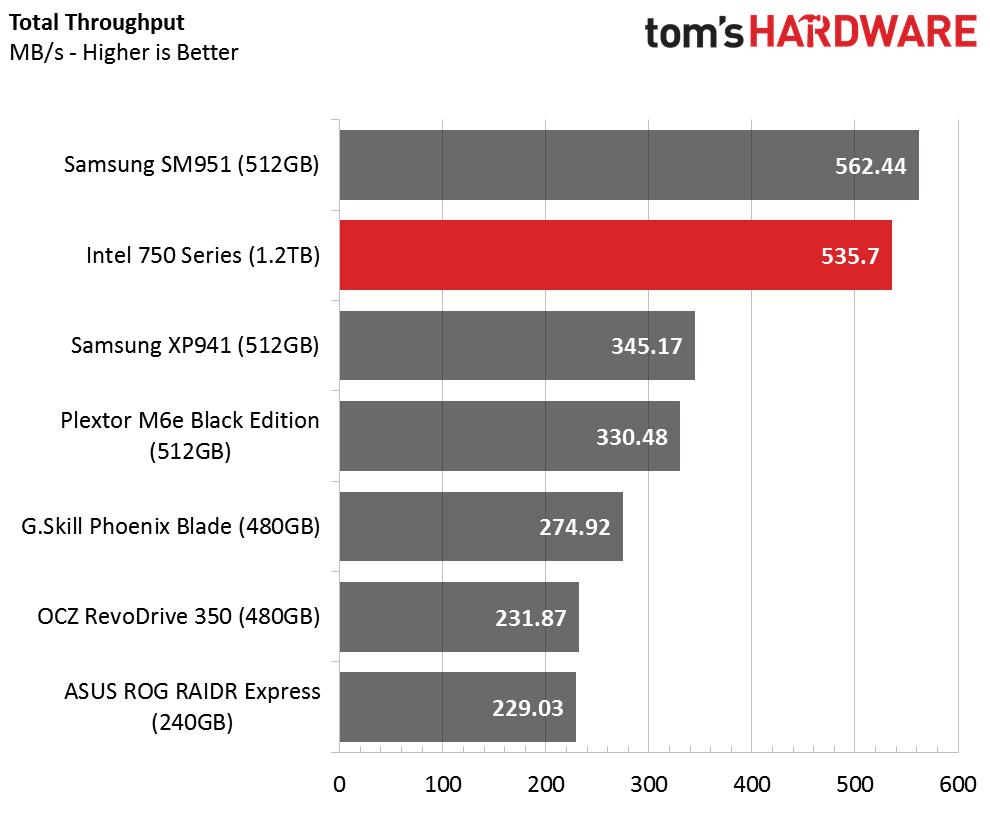Intel 750 Series 1.2TB NVMe PCIe SSD Review
Intel is still playing by the 2014 playbook, re-purposing datacenter technology to fit your desktop and budget. This time, the company is reaching for its top-shelf controller technology to guarantee a winner.
Why you can trust Tom's Hardware
PCMark 8 Real-World And Advanced Software Performance
PCMark 8 Real-World Software Performance
For details on our real-world software performance testing, please click here.
Service Times
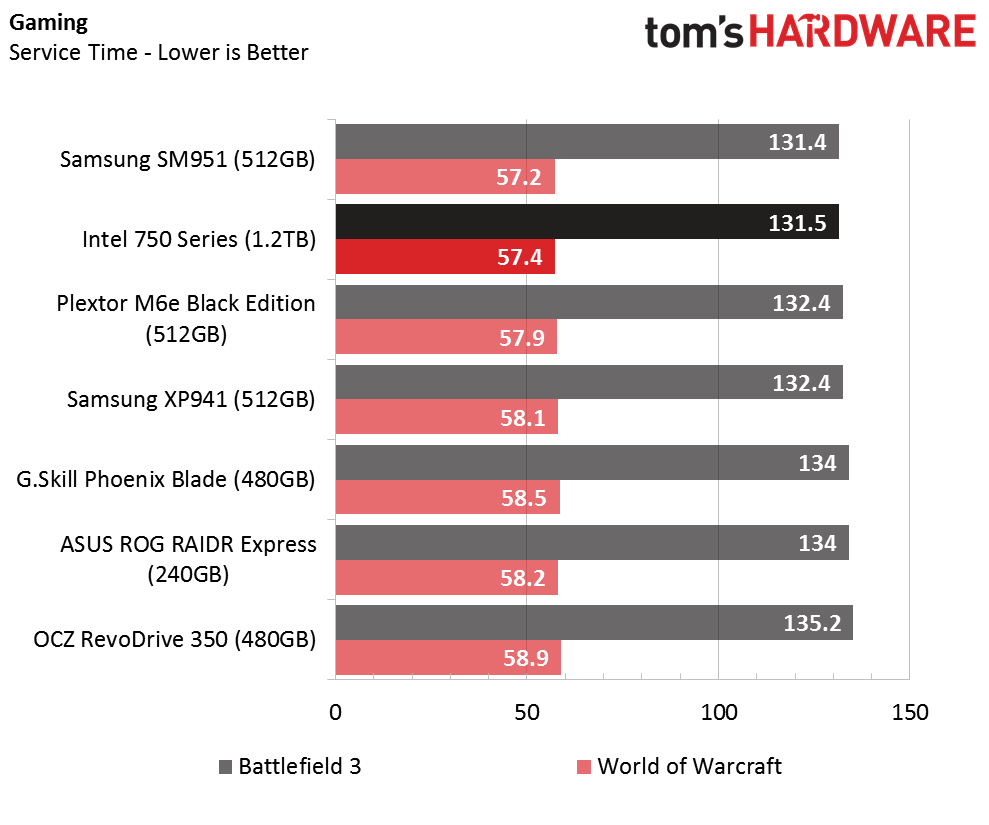
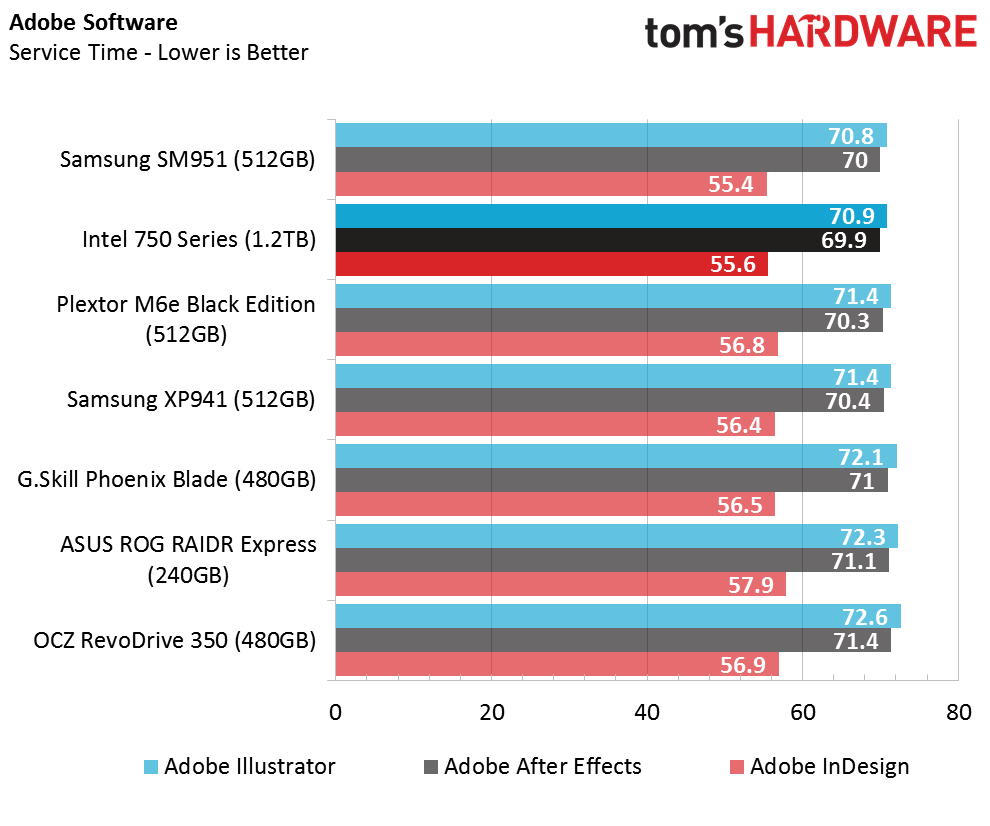
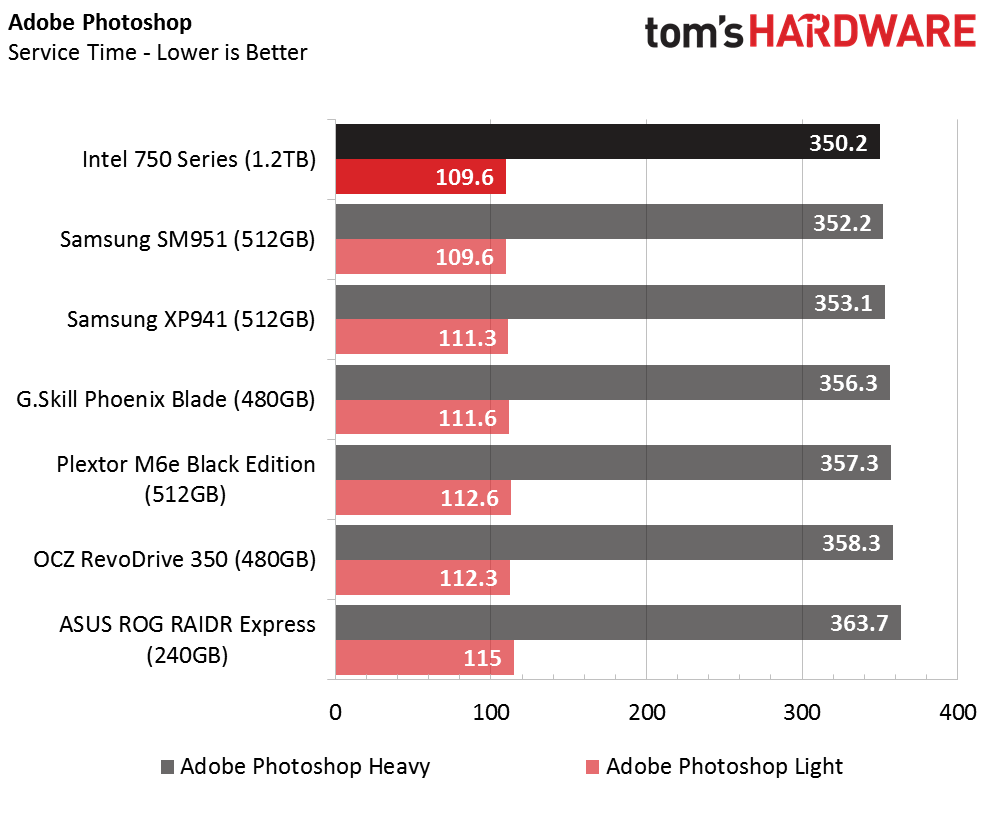
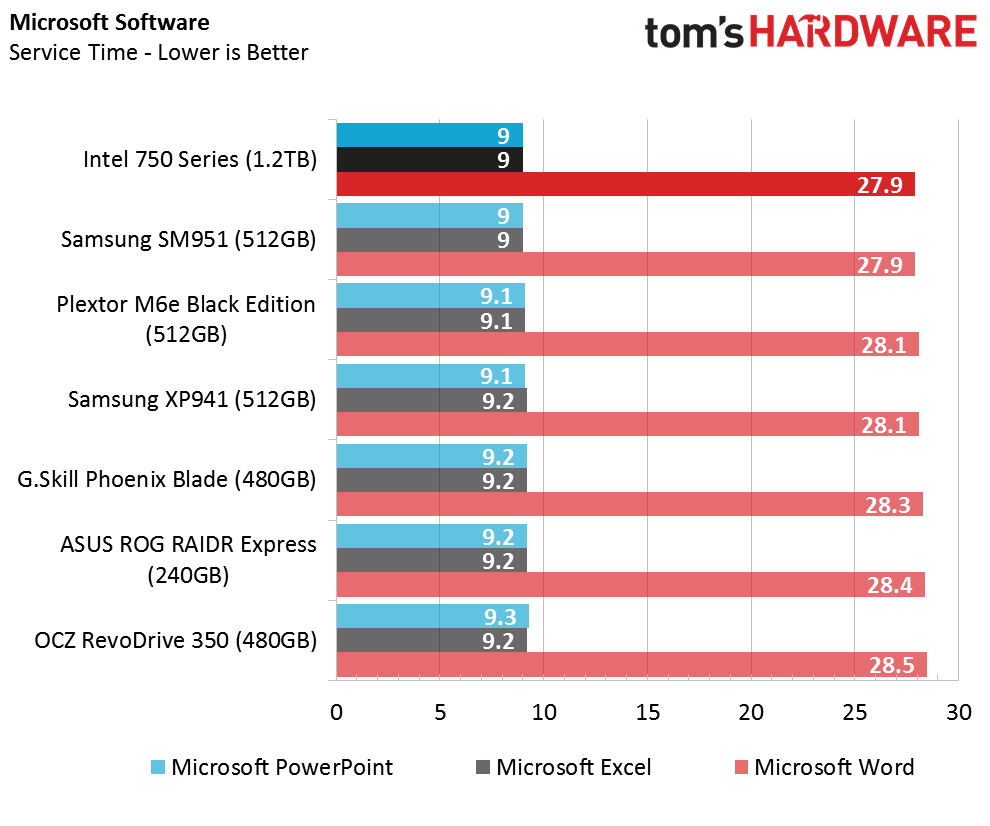
I often read user comments about flat performance across different products. Of course, SATA limits throughput to 6Gb/s. Even without that ceiling, though, information can only move as fast as the workload allows. NVMe lifts some of the technical restrictions, but we still need workloads about to utilize the performance available.
Only one test on the daily use software performance charts shows a large differentiation between products on the chart: Photoshop Heavy. That test demonstrates a 13.5-second difference between the slowest model and Intel's 750 Series 1.2TB up top.
Throughput - All Tests
The throughput performance measurement accounts for all workload tests from the daily use software list. The 750 Series is excellent in this suite, though not even the benefits of NVMe can unseat Samsung's SM951...at least not without the heavy conditioning you're about to see.
PCMark 8 Advanced Software Performance
To learn how we test advanced workload performance, please click here.
Throughput Tests
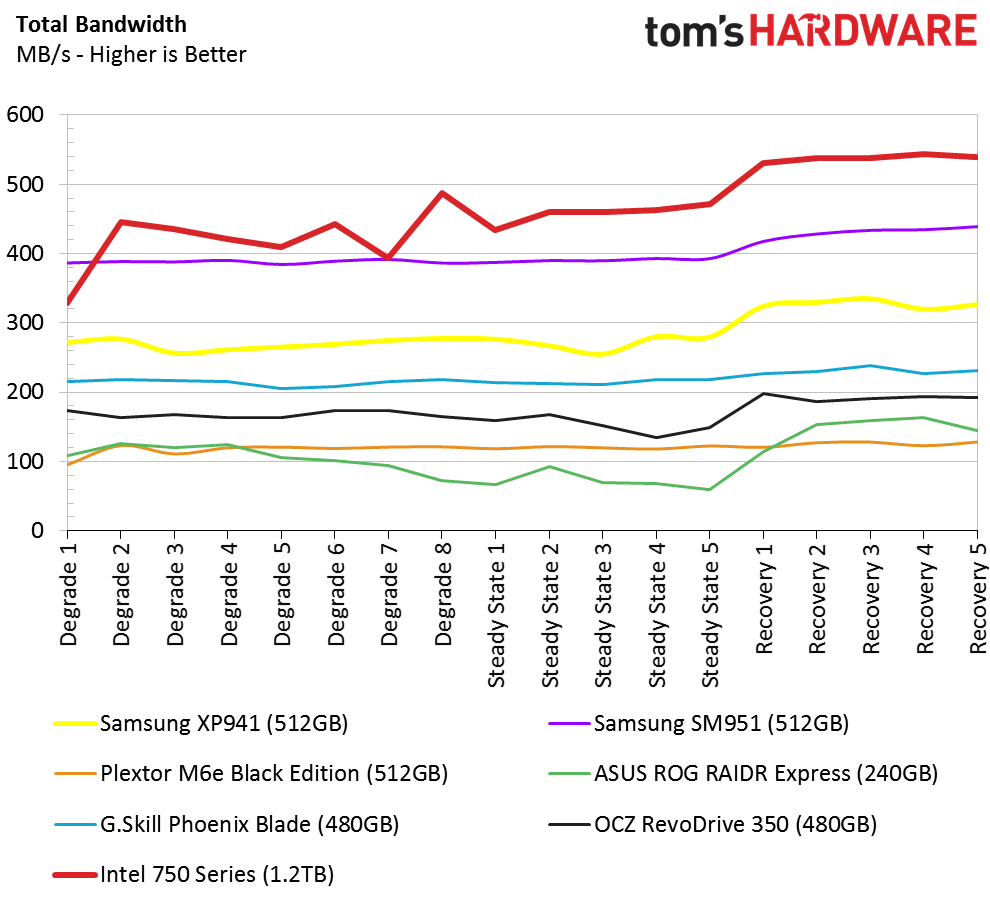
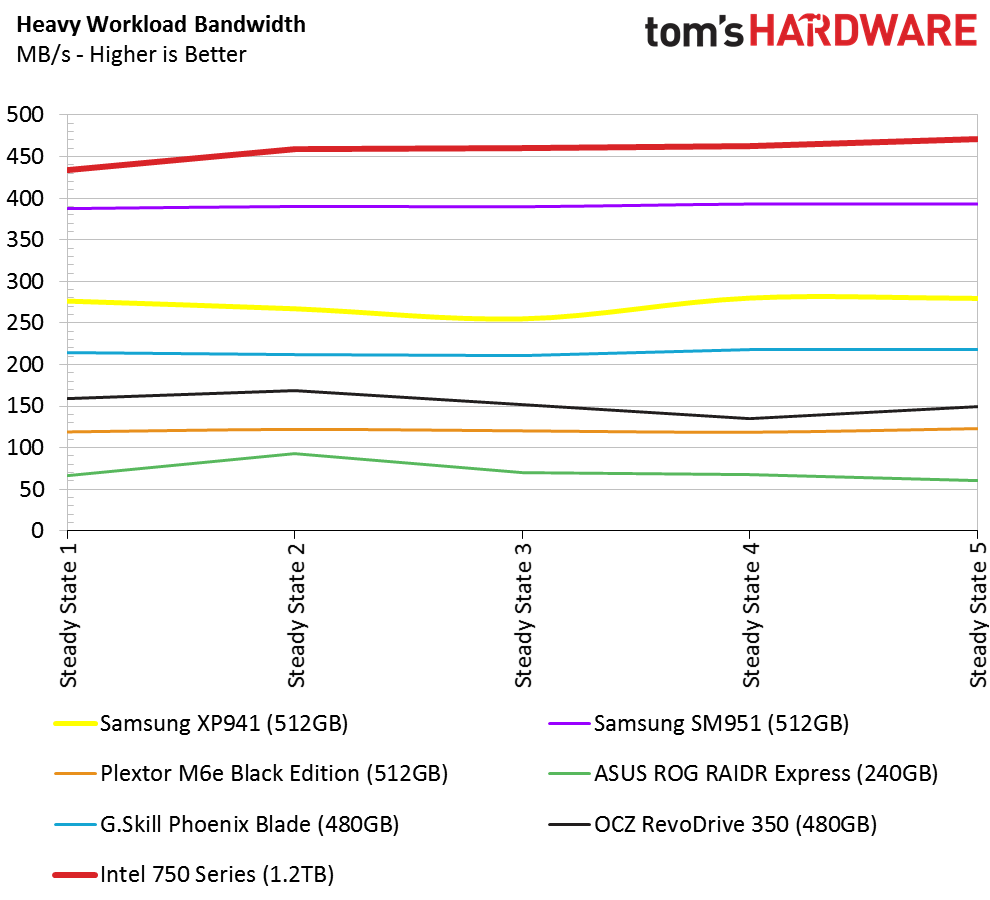
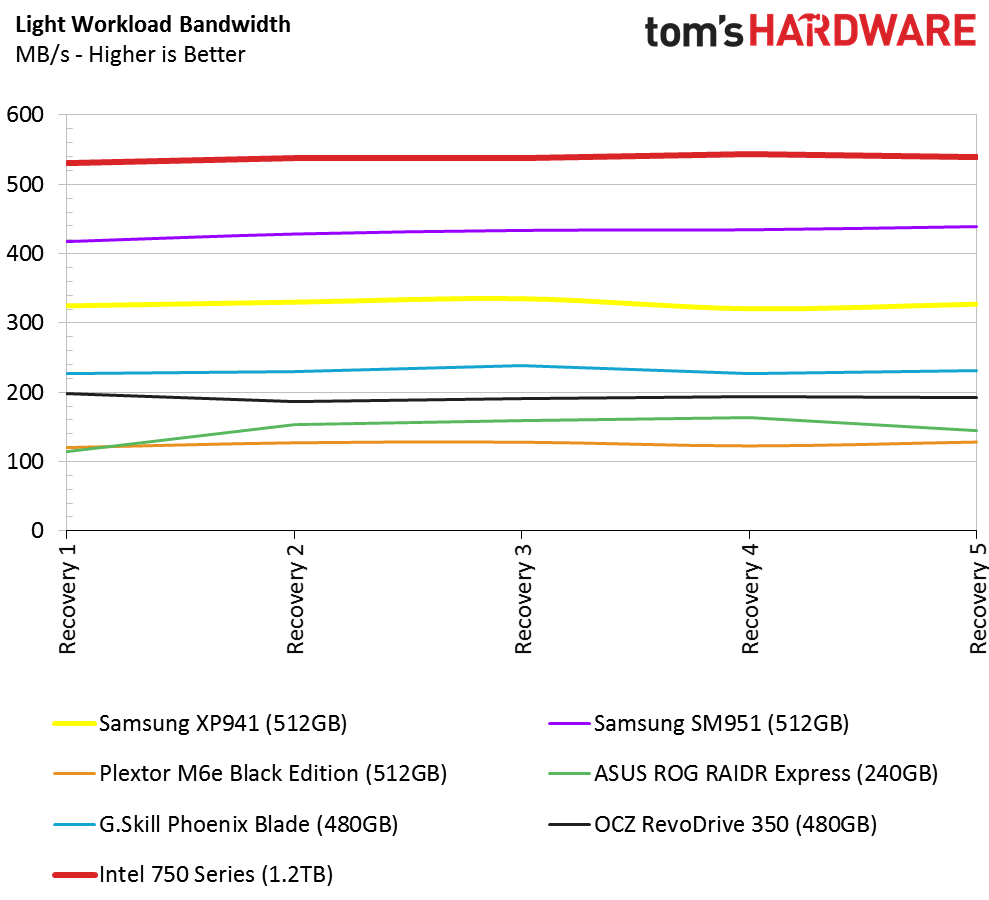
Heavy preconditioning changes the landscape entirely. Previously, we saw the SM951 ahead of Intel's 750 Series in several tests. The Samsung SM951 rocks under client workloads, while the 750 Series is faster under heavy use. Professional users running demanding workloads take note; Intel's 750 Series is the superior product if you can use it effectively.
Service Times
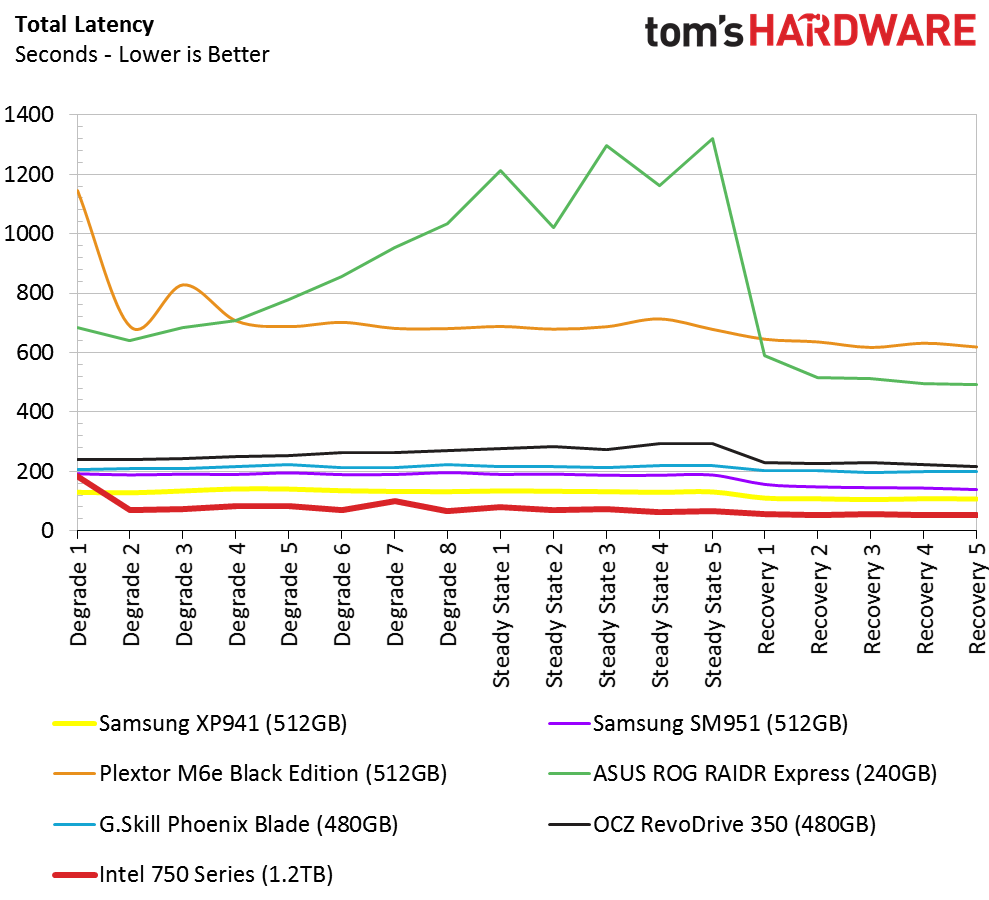
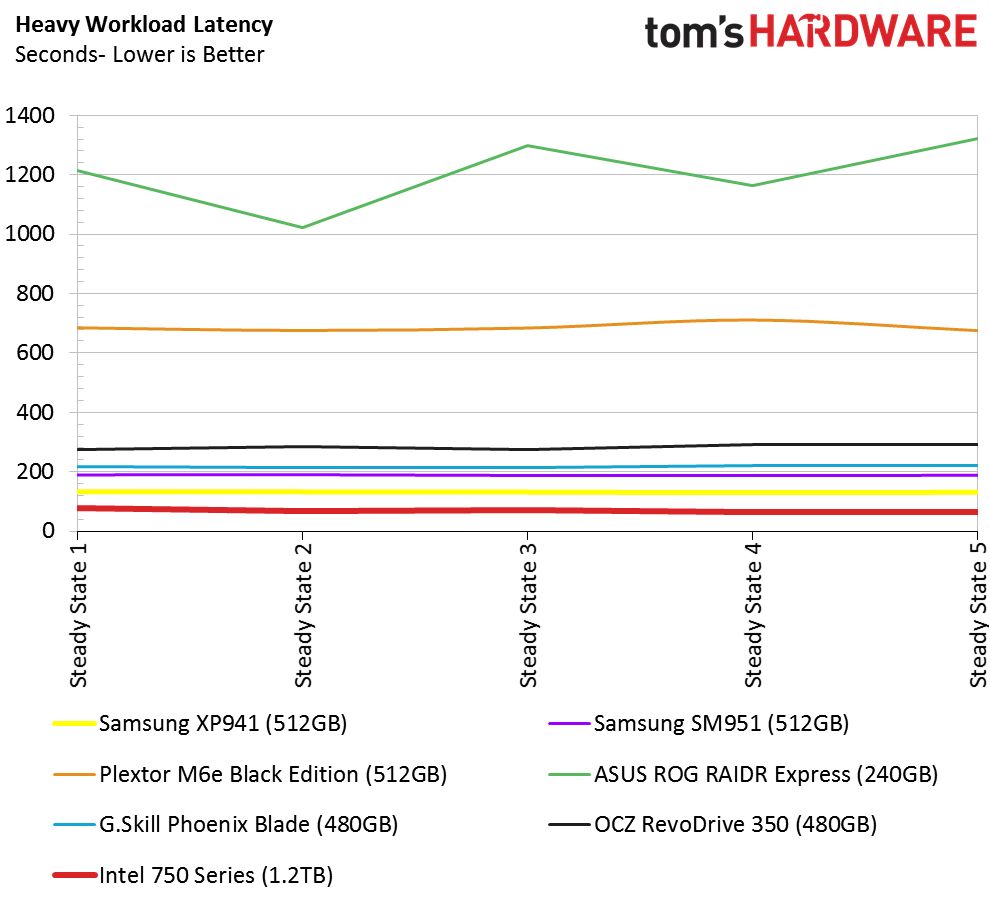
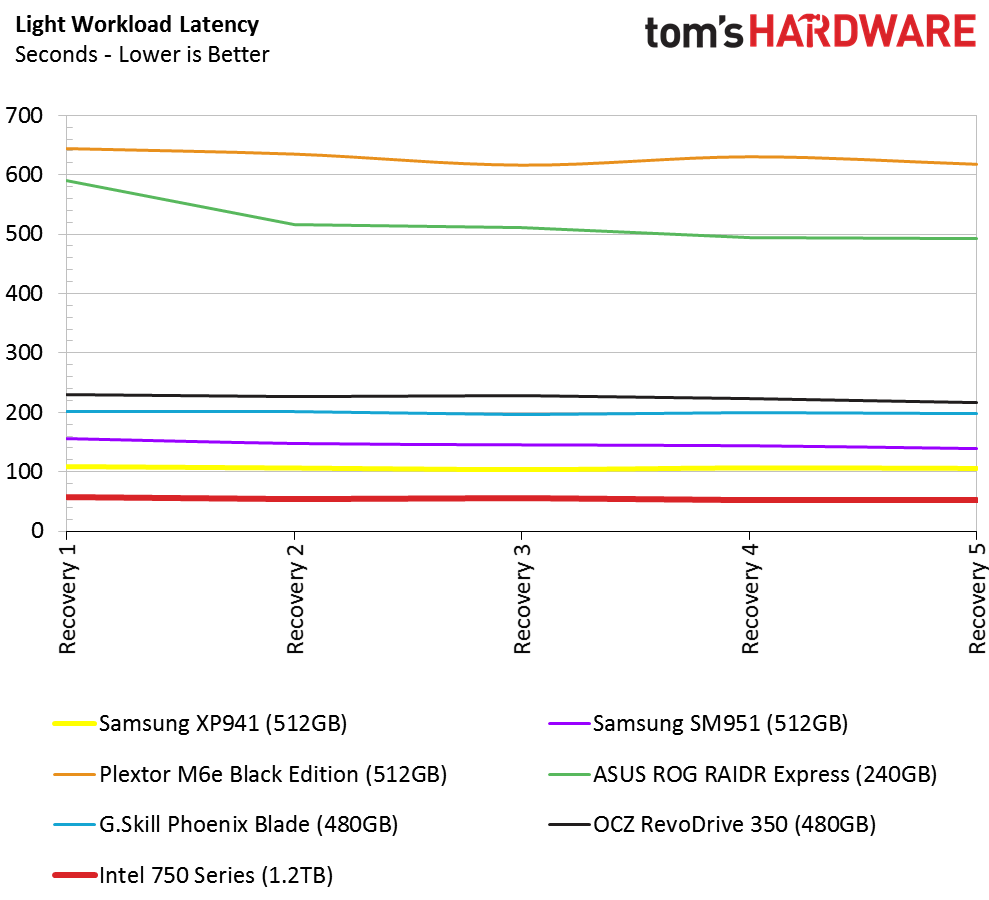
NVMe reduces latency across the board under heavy loads. This is one of the most significant tests in our review, since it's indicative of a better user experience. The Intel 750 Series 1.2TB delivers performance at nearly half of the latency we measured on Samsung's SP941 512GB.
Get Tom's Hardware's best news and in-depth reviews, straight to your inbox.
Current page: PCMark 8 Real-World And Advanced Software Performance
Prev Page Mixed Workload And Steady State Testing Next Page Final Thoughts
Chris Ramseyer was a senior contributing editor for Tom's Hardware. He tested and reviewed consumer storage.
-
mapesdhs Typo on the 1st page, it states, "Up To 22400 MB/s" for sequential read.Reply
Presumably that's supposed to be 2400. ;)
Ian.
PS. Would be handy to include just one good normal SATA SSD as
a comparison reference, eg. 850 Pro 512GB.
-
CRamseyer Thanks Ian, we'll get the typo fixed ASAP.Reply
Let me see what I can do about putting a 2.5" performance drive in the charts. I'm building new charts now for PCIe-based devices.
Looks for the other SM951 capacity sizes and Predator soon. -
tridon ReplyPS. Would be handy to include just one good normal SATA SSD as
a comparison reference, eg. 850 Pro 512GB.
For those of us that don't have these number in our heads, I get no real sense of how fast this really is compared to my ssd. -
unityole from what I see, intel with lower performance number is likely due to lower performance controller or flash or firmware, whichever it maybe we all know samsung like to clock controller/flash higher for better looking performance. reason that random write at QD1 is so fast probably because of NVMe. can't wait to see this go up against SM951 NVMe.Reply -
unityole ReplyFor those of us that don't have these number in our heads, I get no real sense of how fast this really is compared to my ssd.
from HDD to SSD you see the huge latency drop by about 50x, where as fastest SSD compare to ram is maybe 30-50x dependent on ram/ssd. with NVMe can look forward to at least another 3x loss in latency.
basically it'll be so much more snappier than your ssd for sure. -
AndrewJacksonZA Does this quote from page 5 apply to this card: "In time, we hope to see a RAID 0 NVMe boot environment that would give this test a little more meaning."Reply
Is this card bootable in Windows 10 or not? -
CRamseyer I haven't tested it in Win 10 yet but I don't see MS going backwards with NVMe and not allowing it to boot.Reply
-
ralanahm Hi thank you for the article. If you ever reviewed a Mushkin scorpion deluxe could it be added to the chart? it has 2000 MB/s. the top one is a four 480-ssd raid on a card.Reply
http://poweredbymushkin.com/catalog/36-scorpion-deluxe-pcie-ssd
-
Arabian Knight NVMe Samsung SM951 is coming soon . and I think it will outperform this card ;) ..Reply
-
atheus Maybe it's just me (I doubt it) — when I see an article on something like this the biggest question on my mind is what exactly am I going to get from going with something like this for a system build rather than 2.5" SATA SSD at less than half the price. In order to understand that, I've got to go dig out another article with 2.5" SSD stats and compare them there. Please consider putting the most prevalent main drive option of today into the charts next time you pop out a NVMe article.Reply
